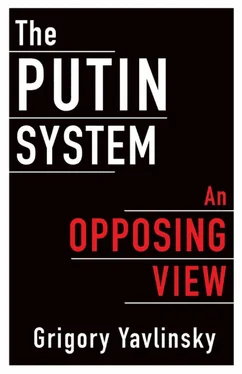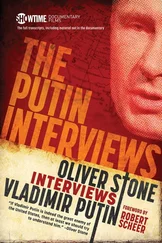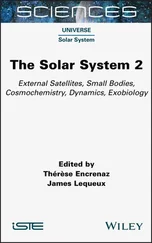The second ideological trend, resulting naturally from the first, is that supporting the authorities is portrayed as the civic duty of the people in its entirety, regardless of the extent of disagreements among them. Accordingly, if someone refuses to support the authorities, let alone rebels against them, this indicates, whether directly or indirectly, that its opponents are not a part of the Russian people. The media and the government present such behavior, at best, as an honest blunder under the influence of various harmful ideas and, at worst, as a consequence of not loving one’s people, not understanding their interest, or deliberately betraying them.
In the past few years, this theme has become particularly pronounced. The presentation of all opponents of the ruling circle as antisocial, hostile to the Russian people, belonging to some other, non-Russian society has become one of the key messages of the political and ideological broadcasting by the main government-owned media. Moreover, the point that is hammered over and over again is that all opponents and adversaries of the present authorities represent a fifth column directed from abroad with the aim of dismantling Russia’s statehood, causing the breakup and partition of the country, enslaving its people, and so on. This ideological trick solves two primary tasks: on the one hand, it deprives those in the opposition who advocate for a European path for Russia of a mass following; on the other, it constrains those who call themselves a patriotic opposition by undermining their political base and pushing them to the fringe, as they face the choice between endorsing the powers that be or being labeled extremists who must be kept away from the levers of government power.
Finally, the third ideological tenet posits a hostile international environment. As a matter of fact, this logically complements the first and second propositions. Indeed, a ruling circle that is the sole embodiment of the notion of Russia’s statehood and peoplehood must resist those hostile forces that seek to ruin and destroy this statehood. Accordingly, if all the parts and strata of the people are rallying around this ruling circle, it means that the state’s enemies are somewhere outside of the country, an external enemy and a threat to the nation. This naturally leads to an increasingly emphatic anti-American and, more broadly, anti-Western outlook, transmitted by the ruling circle to the public, with finger-pointing at the West and especially at the United States as the eternal and irreconcilable foe of Russian statehood.
The propagandistic portrayal of the West as the main and virtually the only foreign enemy of the nation logically flows from the Russian establishment’s favorite message, wherein those who criticize the Russian government are against the Russian people and are influenced from abroad. There is virtually no other candidate for this role of chief villain—although, were the Kremlin propaganda in a certain sense more forthright and less cowardly, it might discern a primordial challenge to itself in the unsettlingly rapid rise of China or in the methodical spread of a radical, militant strand of political Islam.
Nonetheless, for various reasons, the West has turned out to be the most convenient for Russia to portray as the primary threat and adversary. On the one hand, the West is more laid back than China or the aggressive wing of political Islam in responding to confrontational rhetoric; as a rule, its response is also merely rhetorical. Essentially, the West has accepted the rules of Russia’s political postmodernism, which leaves enough room for publicly calling the Western establishment the enemy of Russian statehood while, at the same time, demanding from this establishment visa-free travel and promotion of trade and investment in Russia. Meanwhile, Russia’s ruling circle is well aware that an attempt to play such a game with China (let alone trying, for example, to establish Russian control over China’s internal distribution networks) would be immediately and abruptly blocked by the Chinese.
On the other hand, the aggregate image of the West is a natural common enemy for a panoply of different currents and forces inside Russia that espouse an idealistic view of “traditional” society and set it up against the present-day postindustrial society, which they see as “corrupted” by “virulent” forces of liberalism. [7] We should keep in mind that the West is not merely a convenient propaganda target. It is in fact dangerous for Russia’s ruling circle, first and foremost because it symbolizes those principles that are most dangerous and destructive for Russia’s peripheral authoritarian regime—namely, the principle of equality before the law, the principle of an independent judiciary, the inviolability of private property, and the ideal of holding government accountable to society.
The power of the negative image of the West to mobilize public outrage in Russia is notably higher than the potential power of the negative image of any alternative candidates for the role of Russia’s chief external foe.
Finally, as the most powerful force in today’s world, the West as adversary suits the aspirations of the Russian elite, who, since the Soviet era, have become accustomed to viewing themselves as central on the global stage. In spite of the increase in the relative importance of former Third World countries in global politics, Russians and their elite do not view any one of them, including China, or even all of them taken together, as a worthy adversary for the former superpower. In addition, the present authoritarian regime views the United States and Western Europe as the only political players in the world with reason and means, however limited, to bolster the forces inside Russia that could fully or partially escape from this regime’s control. From the point of view of the ruling circle, no other global players have either the requisite means or a sufficiently strong desire to do so.
Granted, direct Western support for civic organizations in Russia oriented toward European political culture has been relatively insignificant, and Western rhetorical assessments of Russia’s political system have been rather bland. Even so, given the many historical commonalities between the peoples of Russia and of the European Union, if Western rhetorical challenges psychologically resonate with Russia’s mass consciousness at some point in the future, then Russia’s post-Soviet system may experience a major ideological crisis, if not an outright collapse. The many examples of peaceful “color revolutions” since the turn of the century, as well as similar confrontations that ended up in government use of force, do not look like something that could be easily transplanted onto Russian soil. But that is today, and what may happen tomorrow causes considerable, even if somewhat irrational, fear among Russia’s present-day rulers.
Thus, the view of the United States and NATO as enemies and chief potential adversaries is convenient for the authorities from the standpoint of ideological struggle against the opposition, while at the same time it reflects real concerns of the ruling circle with regard to the West’s interference in matters that the Kremlin views as nobody else’s business. Either way, anti-Western rhetoric has become an important component of the ideological identity of Russia’s authoritarian regime. It would be erroneous to dismiss it as a short-term response or as merely a convenient tool for accomplishing immediate tasks.
The fourth ideological trend is that the government and its media are increasingly pumping up Russians’ sense of pride and self-esteem. In principle, this is nothing unusual and is entirely normal. The civil society of any country has a natural need for a collective sense of self-esteem, which is built up using historical events (such as military victories and conquests), economic successes, achievements in sports, and many other elements. Invoking past and present national success stories does not constitute any kind of ideology per se. However, an ideological twist appears whenever these achievements start to be used as justification for the lack of normal living standards, the lack of functioning public institutions or their failure to perform, or the lack of clarity about the vision of the future development of the country and its people (as in, “We don’t have any of that, but we are making missiles instead”).
Читать дальше












